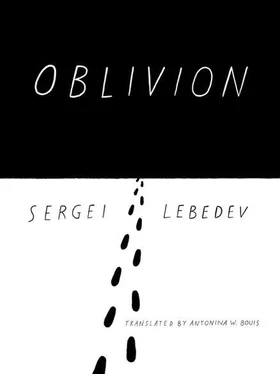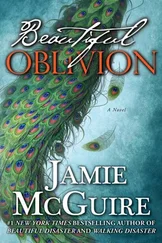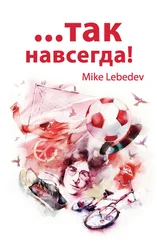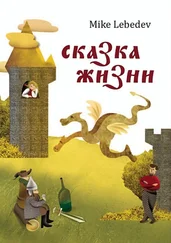Streams of hot air came from the helicopter’s exhaust vents; the foreigners, who had been brought here for an excursion—I’d seen the sign in town for “camp tours”—wore protective footgear and tried not to touch the soil or the buildings, they must have been warned about radiation. I stood on the mountain slope, by the adits, like a savage witnessing the landing of a spaceship; their clothing came from a different, full-color world, and I wanted to shout that you can’t come here in a helicopter, you can’t land for an hour to take pictures and pick up a souvenir that the tour organizers left for you to find. If I’d had a gun, I would have chased them away with a shot; instead all I could do was watch and understand that despite the spirit of the our times which insisted not just on the equality but on the total conformity of people, there were insuperable barriers, indelible differences deeper than religion, culture, or prosperity; the colored jackets negated the area, protected against its colorlessness, and I saw—through color—that we were born in different times, even though they coincided chronologically. This difference—between those born in the same years but in different times—was so powerful that it elicited denial. The two women at the railroad and the three bandits from the night before were closer to me—it was not that we were surrounded by the same realities of life, but that we were born of those realities, we carried their deficiencies and could speak in the language of deficiencies; but the people in the colored jackets with cameras were whole and in that sense, estranged.
The helicopter flew away; I went down, down, down the stones, the river channels, and it seemed that now there was only descent for me, down the dried channels, the crunchy moss, down, down, down.
The city cemetery where Grandfather II’s wife and son were buried was just a piece of land in the middle of the tundra. The graves, fences, and crosses unframed by trees looked as if patients in hospital beds had been brought outside; a cemetery without trees, without a brick wall around it, it seemed like a slum repeating the boredom of the garages and sheds. There was also the feeling that the deceased had settled themselves in a new place, and the result was a disorderly conglomeration of graves instead of a regular order; they huddled together like prisoners on bunk beds to keep warm, like people with bundles pushing into a train car until their ribs cracked, they buried others and then climbed into the ground themselves.
A little church was stuck on the edge of the cemetery; its red brick, which hadn’t yet turned dark, reminded me of the few big houses where the mine bosses lived, as you come into town; if not for the dome, it could have been yet another mansion, and it was probably built by the same crew of workers; the church was seen—by those who commissioned it, by the architect, and by the builders—as God’s mansion; it was strange that they hadn’t found a different kind of brick for the church, that they’d put it there like a guard hut without searching for the more perfect place, and so from whichever angle you looked in the cemetery, the church was pushed into the ground, destroyed by the power of the complex’s smokestacks, striped like prison garb, belching volcanic smoke, and dwarfing the cross and the gilded dome.
In the chaos of graves there was one section where the stones were higher and more massive; amid the rusted crosses and the low fences sinking into the boggy soil stood rectangles of black dolerite, brought here by railroad; the inscriptions on the stone were gilded. This is where the bosses were buried; oval frames showed portraits of men in uniform and suits, colonels, chief engineers, PhDs in technical sciences, and they looked at one another, because the stones had been placed in an imaginary circle, and no sightline could escape it.
The low clouds brought a June blizzard, snow blackened by the smokestacks fell on the graves, black snow. It looked like ashes from an old fire falling from the sky; then the stacks belched smoke the color of cinnabar, and the snow turned deep red, melting on my face, spotting the cemetery paths; a man ran out of the guard booth, grabbed me by the arm and dragged me under the roof; cinnabar snow can be dangerous, but I did not care.
The tundra around the cemetery reddened, as if watered-down blood had seeped from beneath the ground; red water flowed down my arms, my face; the color of brick dust, cinder with the bluish cast of gunpowder splashed across the landscape, colored the mountains and sky, and the monuments in the cemetery became islands in the high water of the color. I understood that this was coincidence, a burst of snow that was imbued with smoke from the stacks; but a red polar hare ran in the tundra, looping around, escaping an imagined hunter, the madness of red, and it turned out it was running in circles; the hare tried to escape the red blizzard not knowing what its own color was, leaping aside, trying to confuse the trail, going low and then jumping back up on the graves.
Finally the hare wearied and collapsed in a mossy hole; only its ears were visible. I realized that it was pointless to run like the hare if you were to see red water on your hands; pointless to say that this is just pollution from the complex when in your gut you know what the red snow is about ; you are called, and you can only experience your own shock, follow its path—without trying to understand it, break it up into its components. Only then will the red snow covering the cemetery become something deeper than an image or a metaphor—it will become an opening door leading to the space of growing destiny; the words of Gilgamesh came to mind, his response to the Scorpion-Man:
“Whether it be in sorrow,
Whether it be in pain,
In cold, in heat,
In sighing, in weeping,
I will go!
Let the gate of the mountain now be opened!”
Red snow fell over the tundra to the Arctic Ocean; the land was red, and the water devoured it, and dark mirrored rivers flowed unperturbed; red drops fell from wires, snow melted on stone in the quarry, and red rivulets ran along cracks and fissures, as if the blood-carrying veins of the earth had been cut here to extract it; red foam appeared on the oil rigs that looked like camp watchtowers and in the mouths of the wells, and the gas torches over the tundra cavities turned crimson; the chain saw at the felling site splattered red sawdust, and the excavator shovel dug into darkness where something slurped viscously; bedbugs under the boards of the collapsed barracks awoke from their half-century sleep, and bears whose ancestors grew fat on human flesh returned to the slag heaps where the executed bodies were dumped; human blood flowed in the wires, the tree trunks, in the arteries of animals, in the emptiness of the land, as if the world had turned into a bleeding tumor, a tangle of blood vessels, and only the rivers flowed unperturbed.
Then the red snow melted completely; there was a light ringing in my head, as if capillary strings had burst from the tension. We went outside.
The watchman’s left arm was artificial, and his uncreased shoes revealed that his legs were also prosthetic; the wrinkles on his face were deep and aged, he could no longer smooth the skin in order to shave, it was baked like skin after a burn, so that uneven gray bristles peeked out; thin, once very tall—any line arranged according to height would start with him—the man was now bent over, and the hump on his back was like an incipient second head; his eyes belonged to a different face, a different body: life had wearied the flesh, but the eyes, their red, ulcerated whites, held something sleepless, remembering, always awake but expecting nothing.
Читать дальше












